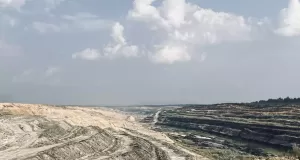Hamida Bi, an activist and the president of Bhopal Gas Peedit Mahila Udyog Sangathan (BGPMUS), who worked with thousands of desperately poor survivors of the 1984 tragedy passed away on Tuesday, December 29. She was 74.
Raeesa Bi, one of her close friends and one of the longest surviving members of BGPMUS says, “The cause of her death was the Union Carbide plant and not her old age.”
Hamida, herself a victim of the tragedy, mobilised other victims and protested on the streets of Bhopal demanding rights, proper medical care and compensation for those who had to suffer this man-made disaster.
“Why can’t gas tragedy victims, who are people from the weaker sections of the society, have proper lives?” Hamida Bi had asked in a soft voice from her narrow wooden bed, when this author met her at her daughter’s house in Kabitpura, a month before her passing.
Born in Bhopal, Hamida Bi’s protest has been long and sustained. Many of those who died in the tragedy were her relatives.
Every Saturday since January 23, 1986, Hamida would walk from her house in Imbrahimpura to Yaadgaar-e-Shahjahani Park to attend the weekly meeting organised by BGPMUS, located near the Central Library in Bhopal. There, she would meet victims.
The rest of the days of the week would be devoted to the Swabhiman Kendra of the BGPMUS. At the centre, she would engage with the girls and women and help them develop skills like knitting and sewing.
As many of the victims were unaware of their near ones in the aftermath of the tragedy, Hamida would help them file claim papers, prepare and maintain health files, and even sometimes walk with them to the dedicated gas victim hospitals to ensure that they got the free-of-cost medical facilities that were promised to them.
“As most of the gas victims were from weaker sections of the society, they directly depended on government support. However, the government looked the other way at times. Be it proper medical treatment, compensation, pension to the widows and rehabilitation of gas victims…we fought on the streets or took the route of the courtroom,” she had said to this author at an earlier instance.
For over three decades, she had made it a point to attend the weekly meeting which had been discontinued after the lockdown. That she had been a homemaker, largely limited by a conservative system, before taking on this role is one of her many achievements.
She firmly believed that the fight of gas tragedy victims had been weakened by successive governments both at the Centre and state.
“Actually, nothing came in handy for the benefit of sufferers, and this fight will go on,” she had asserted. She believed that things had only worsened in the last three decades.
Hamida Bi had travelled to several countries, and also actively took part in the demonstrations organised by various organisations across India.
A year ago, Hamida Bi became the president of the BGPMUS, after the untimely demise of Abdul Jabbar, who had been a voice for victims of the tragedy and served as the convener of the organisation.
“Hamida Bi and Idris Bhai (her husband) were both committed activists of the Bhopal Gas Peedith Mahila Udyog Sanghathan. While Idris Bhai passed away several years ago, Hamida Bi continued to uphold the cause of the victims as a leading woman activist. She was a fiery speaker and an able organiser. She was the natural successor to Abdul Jabbar Khan as the leader of BGPMUS. Her contributions to the struggles led by BGPMUS will always be remembered,” said N. D. Jayaprakash, co-convenor of the organisation.
(Article courtesy: The Wire.)




